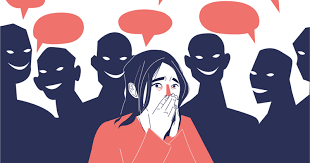Introduction
Social anxiety disorder is a complex mental health condition that affects countless individuals worldwide, yet it often remains misunderstood and underestimated. In this comprehensive blog article, we aim to shed light on the intricacies of social anxiety disorder, exploring its symptoms, causes, impact on daily life, and effective strategies for managing and overcoming its challenges. By increasing awareness and understanding, we hope to provide support and guidance to individuals affected by social anxiety disorder and foster a more compassionate and inclusive society.
Having issues with anxiety? Experts at Huston Mental-Medical Health Clinic are ready to help you
Anxiety disorder, also known as social phobia, is an anxiety disorder characterized by intense fear and avoidance of social situations due to the fear of being scrutinized, judged, or embarrassed. Individuals with social anxiety disorder may experience overwhelming anxiety in various social settings, leading to significant distress and impairment in their daily lives.'
Differentiating Social Anxiety from Shyness
While shyness is a common personality trait, social anxiety disorder goes beyond mere shyness. Social anxiety disorder involves excessive self-consciousness and fear of negative evaluation, often leading to avoidance behaviors and significant distress. Understanding this distinction helps in recognizing the severity and impact of social anxiety disorder.
Diagnostic Criteria for Social Anxiety Disorder
The Diagnostic and Statistical Manual of Mental Disorders (DSM-5) provides criteria for diagnosing social anxiety disorder. These criteria include persistent and intense fear or anxiety about social situations, avoidance of feared situations, fear of being embarrassed or humiliated, and impairment in social, occupational, or other important areas of functioning.
Let's look at the signs and symptoms
Recognizing the signs and symptoms of social anxiety disorder is crucial for early intervention and support. These may include excessive self-consciousness, intense fear of social judgment, avoidance of social situations, physical symptoms like rapid heartbeat or sweating, negative self-beliefs, and persistent worry about embarrassing oneself in social contexts.
Impact on Daily Life and Relationships
Social anxiety disorder can significantly impact various aspects of a person's life. It may lead to social isolation, strained relationships, academic or occupational difficulties, low self-esteem, and reduced overall quality of life. Understanding the far-reaching consequences of social anxiety disorder helps in providing appropriate support and intervention.
Co-occurring Conditions
Social anxiety disorder often co-occurs with other mental health conditions, such as depression, generalized anxiety disorder, panic disorder, and substance use disorders. Recognizing these associations is crucial for comprehensive treatment planning and improving overall well-being.
Strategies for Managing and Overcoming Social Anxiety
Seeking Professional Help: Individuals with social anxiety disorder should consider seeking professional help from mental health experts, such as psychologists or psychiatrists. Therapists experienced in cognitive-behavioral therapy (CBT) and other evidence-based approaches can provide guidance and support in managing social anxiety symptoms.
Cognitive-Behavioral Therapy (CBT): CBT is a widely recognized and effective treatment for social anxiety disorder. This therapy focuses on identifying and challenging negative thought patterns, developing coping strategies, and gradually exposing individuals to feared social situations in a controlled and supportive manner. CBT equips individuals with essential tools and skills to manage anxiety and build confidence.
Medication Options: In some cases, medication may be prescribed to manage social anxiety disorder. Selective serotonin reuptake inhibitors (SSRIs), serotonin-norepinephrine reuptake inhibitors (SNRIs), or benzodiazepines may be used to alleviate symptoms. Medication can be helpful when used in conjunction with therapy and under the guidance of a medical professional.
Self-Help Strategies: Individuals with social anxiety disorder can also employ self-help strategies to complement therapy and enhance their well-being. These may include practicing relaxation techniques (such as deep breathing or meditation), engaging in regular physical exercise, challenging negative self-talk, setting realistic goals, and gradually exposing oneself to feared social situations. Additionally, joining support groups or seeking peer support can provide a sense of community and understanding.
Conclusion
Social anxiety disorder is a multifaceted condition that can significantly impact an individual's life. By increasing awareness, understanding, and empathy, we can create a more supportive and inclusive society for individuals with social anxiety disorder. With the right tools, strategies, and support, it is possible to effectively manage social anxiety symptoms, develop resilience, and thrive in social interactions. Remember, you are not alone, and there is hope and help available on the path to a fulfilling and confident life.


